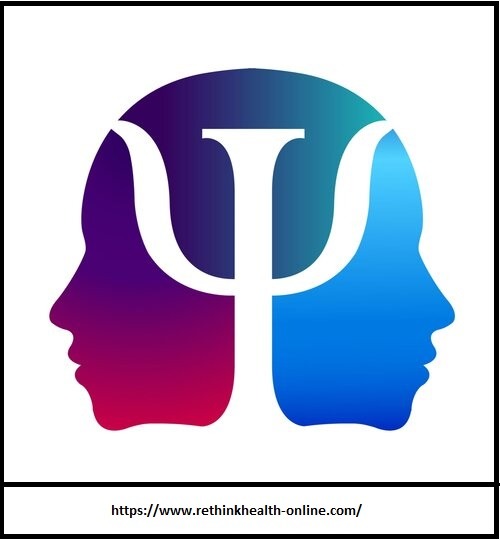Text
Anti-depressant Medication or Psychological Treatment?
As you may have read in our earlier blog, feeling unusually low in mood or depressed is common following critical illness or injury.
We often meet patients who are feeling uncharacteristically low or depressed, particularly following a hospital admission. Given the difficulty patients often encounter in accessing high quality psychological treatments, they may consider trialling anti-depressant medication as an alternative. However, this may not be recommended. For mild-moderate depression psychological treatments are advised (NICE, 2009). National Guidelines (which provide treatment recommendations in the UK) recommend that anti-depressant medication is only prescribed for patients experiencing moderate-severe depression, alongside a psychological treatment.
Furthermore, evidence suggests that anti-depressant medication may not be as effective as first thought. A recent article in the British Medical Journal (BMJ) has been published by Jakobsen et al. (2020), comparing the effectiveness of anti-depressant medication to placebo. A placebo effect occurs when an improvement is produced by a placebo treatment, which cannot be attributed to the placebo itself and therefore must be due to the patient’s belief in that treatment.
In this review paper, Professor Kirsch and colleagues found that anti-depressant medication had a statistically significant benefit when compared with placebo, but not a clinically meaningful benefit. This means that while statistical software was able to detect a benefit, it was such a small effect that on average the benefit was not experienced by patients as noticeable or meaningful.
Furthermore, anti-depressants were found to increase some unwanted side effects. These findings build on other important papers reporting similar results, for example Cipriani et al (2018).
If the average effect of anti-depressant medication is found to be generally small, this inevitably means that some patients at one end of the scale may benefit significantly while a comparable proportion of patients at the other end of the scale may incur unwanted side effects. While anti-depressant medications have an important role in the treatment plans for some people, is clear from these analyses and National Guidelines is that patients who are experiencing mild-moderate low mood should primarily consider accessing a psychological therapy, rather than anti-depressant medication. At Rethink Health we specialise in providing brief, evidence based psychological treatments for adults experiencing depression and other psychological difficulties.
For more information about Psychology Services in Cancer and Clinical Psychology Services visit rethink health.
#Psychology Services in Cancer#Clinical Psychology Services#anti-depressant medication#medical psychologist#psychology for adults
0 notes
Photo

Rethink Health provides adult mental health services who are experiencing anxiety, depression . We work primarily online, so you can access our clinical psychology services from wherever you are. Find out more about Clinical Psychology Services & medical psychologist visit here: https://www.rethinkhealth-online.com/
#medical psychologist#clinical psychology services#Rethink Health#Mental Health Services#Psychological Treatment For Depression
0 notes
Text
Psychologist In England

Rethink Health provides specialist online clinical psychology services for adults following physical illness or injury. We also work with adults experiencing anxiety, depression or psychological distress unrelated to physical health. For more information about Online Psychologist and Psychology For Adults visit: https://www.rethinkhealth-online.com/
#Online Psychologist#Online Psychology Sessions#Cardiac Anxiety#Psychotherapy Clinic England#Psychologist In England
0 notes
Text
Depression, Illness and Injury
Feeling unusually low in mood or depressed is not uncommon following critical illness or injury. For instance, up to 30% patients experience low mood in the months that follow a heart attack (Baumeister et al., 2011) or an intensive care admission (Wade et al., 2012). Patients often describe a sense of irony – that in the weeks that follow discharge from hospital, once they are safely home and surrounded by relieved family and friends, that distressing psychological reactions such as low mood should then start to occur.
There are several treatment options for people feeling low in mood after a hospital admission. We hope this article provides some clear suggestions, to help patients make more informed decisions.
The first thing to emphasise is that feeling low after a hospital admission is common and people often recover independently within a month of being home. Ensuring good sleep hygiene, taking regular exercise, following a healthy diet and (if relevant) smoking cessation are all well-established first-line strategies for improving mood.
For some people, low mood can persist, despite implementation of these basic self-care strategies. In these circumstances, we recommend patients meet with a clinical psychologist or discuss with their GP.
The main symptoms of depression are a loss of pleasure in activities that were once enjoyable. A person with depression may also feel tearful, irritable or tired most of the time, and have problems with sleep, concentration and memory. Mild to moderate depression is when a person has symptoms that make life more difficult than usual, while severe depression is when a person has many symptoms, which can make life extremely difficult.
For mild-moderate depression, anti-depressant medication is not recommended in the UK. Instead, National Guidelines (NICE 2009) recommend that patients receive Cognitive-Behavioural Therapy (CBT) with a psychologist. CBT refers to a collection of psychological treatments that are based on the theory that thoughts, feelings, behaviour and our physiological responses are all connected. If we change one of these, we can alter the others.
For moderate-severe depression, antidepressant medication is recommended alongside a psychological treatment.
Rethink Health specialises in providing psychological treatments for adults who are experiencing low mood or depression. We work online with people from all over the country. Research evidence is clear that online sessions achieve similar outcomes to in-person sessions and are equally or more effective.
For more information about Work Related Stress and Anxiety and Antidepressant Medication visit here: https://www.rethinkhealth-online.com/
0 notes
Text
Psychological recovery after an admission to intensive care
Feeling low or anxious is not uncommon following admission to an intensive care unit. This applies to both patients and their families. This brief blog aims to raise awareness of some of the difficulties patients and their families can encounter following an admission to intensive care. You may also be interested to read this article from the national press:
More than 170,000 patients are admitted to intensive care each year in the UK – and the number of admissions in 2020-21 is likely to be substantially higher. Intensive care units (ICUs) can be highly stressful places. Patients often experience pain, thirst, sleep deprivation, distressing hallucinations, delusions and disorientation, undergo multiple invasive medical procedures and experience side effects from potent drugs.
A state of short-term confusion called ‘delirium’ is thought to be common in intensive care patients, affecting about 40% of patients. Patients who develop delirium can sometimes experience frightening hallucinations. This means patients may see or hear things that they suspect are not really there. In these circumstances a person is not experiencing a mental illness; rather, they are likely experiencing the side-effects of necessary medication or aspects of their illness. Delirious patients can also sometimes appear depressed, lethargic or withdrawn – this can be easily confused with depression or low mood.
As a result of the stressors associated with an intensive care admission, about 40% of patients discharged from critical care experience problems with anxiety or depression and about 23% patients report post-traumatic stress. About 30% of family members can report similar difficulties. Many patients also experience changes to their thinking skills, such as memory, attention or the ability to find the right word.
For many patients, these common psychological responses improve independently in the 2-4 weeks following discharge from hospital. Spending time with family and friends, focusing on physical rehabilitation and obtaining accurate information about what happened during a hospital admission can all be really helpful in a patient’s recovery.
However, some people – through no fault of their own – continue to feel affected by these experiences for more than four weeks following discharge from hospital. They may find themselves preoccupied by distressing memories of their admission, having nightmares or feeling unusually low in mood, anxious or irritable. This can apply to both patients and their families.
In these circumstances, there are several options available. One option is to contact the intensive care unit. There may be an ‘intensive care follow up clinic’, where patients can go and meet with a doctor, physiotherapist and psychologist from the intensive care unit to discuss their concerns. Alternatively, patients can raise concerns with a GP. There is also a charity called ICU Steps that can be found online, which provides more information about the rehabilitation challenges of an ICU admission. Alternatively, you may wish to contact us at Rethink Health. We specialise in helping patients and their families manage the psychological impact of critical illness and physical injury.
For more information about Post ICU PTSD Treatment and Psychologist In England visit here: https://www.rethinkhealth-online.com/
#Low Mood Treatment#Clinical Psychology#Cardiac Anxiety#Clinical Procrastination#Psychology For Adults
0 notes
Text
What is a Clinical Psychologist?
The title ‘Clinical Psychologist’ is a protected term in the UK, which means it can only be used by psychologists who have successfully completed an accredited NHS doctoral training program. Training as a Clinical Psychologist involves completion of an undergraduate psychology degree followed by a period of years spent developing relevant clinical and research experience. Post graduate applicants can then apply for a three-year NHS doctoral training programme. Training as a Clinical Psychologist therefore usually takes eight years or more and leads to the attainment of a Doctorate in Clinical Psychology.
Clinical Psychologists apply psychological theory to help people understand and make sense of what they are experiencing, to support the person to help reduce psychological distress and to achieve their goals. Clinical Psychologists are trained to assess and treat a wide range of psychological health difficulties and draw on multiple evidence-based theoretical models and psychological approaches in their work. This involves taking into account a range of biological, psychological and social factors that can contribute to psychological distress and poor health. By making sense of these factors, understanding one's thoughts, emotions, physiology and behavior and through the engagement with evidence-based psychological interventions with an experienced Clinical Psychologist, improved mental health and wellbeing can be achieved.
Clinical Psychologists are also equipped with the skills to apply psychological theory to working effectively with teams and organisations to support the development and maintenance of a healthy and productive workforce where experiences of high stress and other health problems can create difficulties for the individual and the organisation. Clinical Psychologists are the only type of practitioner psychologist whose training is funded by the NHS.
What is the difference between a Clinical Psychologist and a Psychiatrist?
Clinical Psychologists often work with Psychiatrists to achieve the best outcomes for the people they see. While Clinical Psychologists draw on psychological theory to guide their work, Psychiatrists draw predominantly on medical theory. Psychiatrists initially train for five years as a medical doctor, before completing two foundation years in a hospital and then specializing in psychiatry. As a medical doctor, Psychiatrists are qualified to prescribe medication. While Psychiatrists also consider psychological and social factors, treatment often involves the prescription of medication and predominance to understanding clinical presentations using diagnostic criteria. Generally, individuals are more likely to feel better and achieve their goals when psychological, social and medical factors are all given due consideration within a person-centered treatment plan.
For more information about Clinical Psychologists and Clinical Procrastination Visit Here: https://www.rethinkhealth-online.com/clinical-services
0 notes
Photo

The clinical psychologists at Rethink Health work alongside doctors, nurses, occupational therapists and physiotherapists to help patients to achieve optimal rehabilitation outcomes after physical illness. Find out more about post-intensive care syndrome & medical psychology. For more information about Chronic Pain visit here: https://www.rethinkhealth-online.com/medicine-psychology
#medical psychology#Online Clinical Psychology#Clinical Depression#Social Anxiety Treatment#Psychologist In England
1 note
·
View note